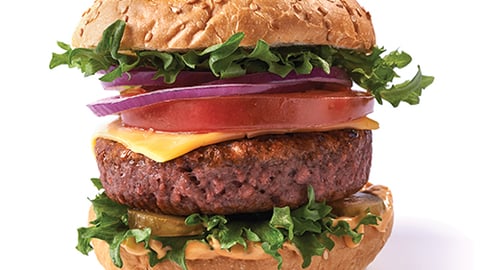How the Pandemic Has Changed Meat Shopping
The pandemic has made most consumers — 75% of them — change their meat-buying behavior, according to FMI — The Food Industry Association.
That percentage comes from its new midyear “Power of Meat” study, which found that sales of meat have increased an unprecedented 34.6%. The Foundation for Meat and Poultry Research and Education and the foundation for the North American Meat Institute also worked on the report.
“Meat department sales almost doubled in the first week of the pandemic, compared to the same week in 2019,” said Rick Stein, VP, fresh food at Arlington, Virginia-based FMI. “We witnessed that consumers did not discriminate over the type of meat, as beef, chicken, pork, fresh, frozen or processed were all loaded into shopping carts week after week.”
The report also found that:
- At least half of consumers bought different brands (58%), cuts (51%) or types (50%) of meat during the pandemic.
- Value has become more important, given meat inflation and mounting economic pressure: 46% changed cuts to save money, and 32% say price per pound has a bigger influence on what and how much they buy, but 44% are seeing fewer promos.
- Additionally, during the pandemic, consumers are now cooking more meals and need more variety (50%), cooking new recipes (37%), and experimenting with different cuts/kinds of meat (34%).
- Meat and poultry sales grew 34.6% amid the pandemic on more buyers and trips and greater spending per trip/buyer. Reflecting unprecedented growth, the meat department sold an additional $7.9 billion and 1.4 billion pounds between March 15 and July 26 versus a year ago.
- Nearly half, 48%, of shoppers bought more meat to support the greater number of at-home meal occasions.
- Beef generated 61% of new fresh meat dollars, with particular strength for ground beef.
- Nearly two-thirds of consumers said that their meat IQ has improved as they intentionally or unintentionally bought differently. The pandemic-driven changes in purchases have resulted in 63% of shoppers considering themselves more knowledgeable about meat.
“The (report) has again proven the value of meat and poultry to retailers, but most importantly, to consumers,” said Julie Anna Potts, president and CEO of the Washington, D.C.-based Meat Institute. “The survey affirms that meat and poultry remains the food consumers want when times are good and when faced with a crisis. Consumers want the comfort and nutrition that meat provides.”





